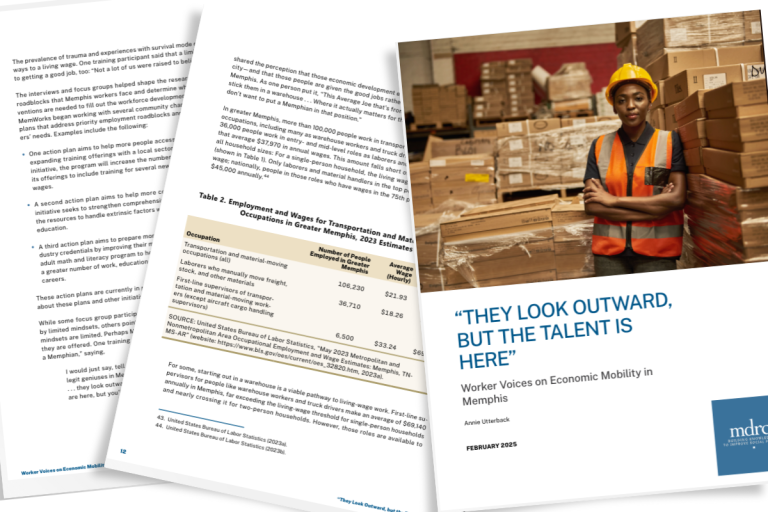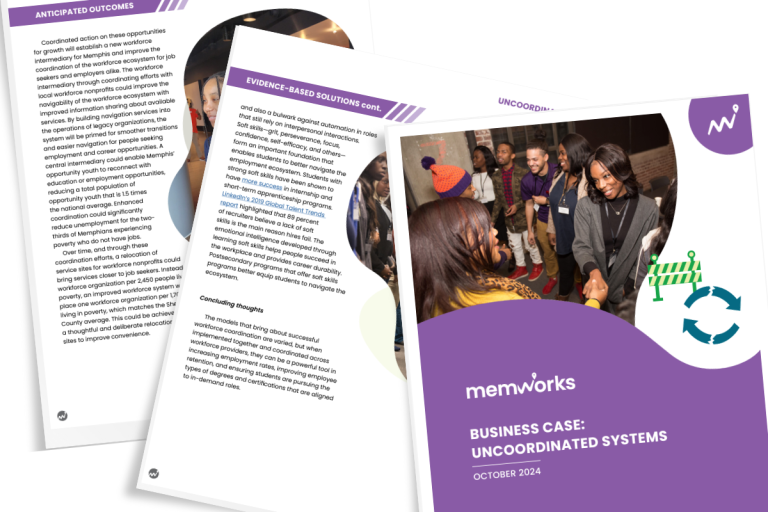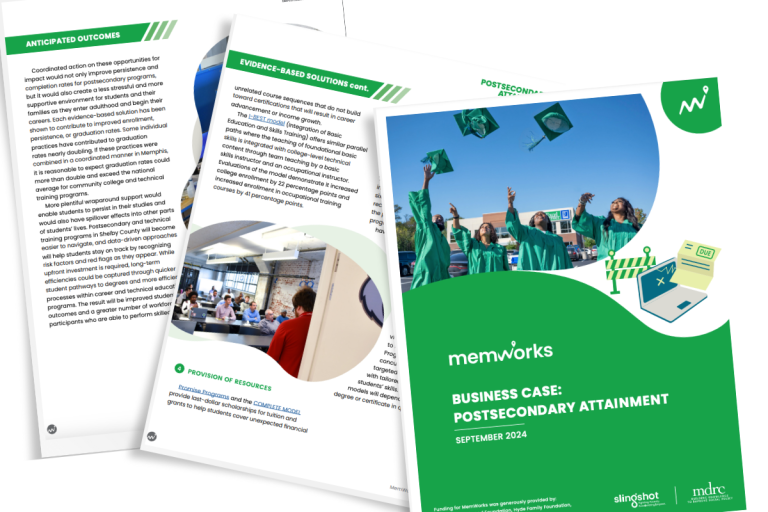We cannot solve what we do not understand. MemWorks built a comprehensive understanding of the employment roadblocks experienced by workforce participants living in poverty before developing evidence-based solutions to address them.
Meeting with workforce participants and the organizations that support them was a core focus of our effort. We conducted surveys, interviews, and focus groups with more than 100 postsecondary students, workforce participants, employers, and nonprofit staff who provide workforce services. Over the next several weeks, we’ll share the key insights that surfaced from these lived experiences in trying to access living-wage jobs.
Living-wage jobs versus any job
“I mean, since I was 17 years old, I’ve never had a problem getting a job. The problem is it’s a low-paying job. . . . And then when you are applying to jobs five, and six, seven times, and you know you’re qualified, but they still won’t hire you. And then when you do get hired, they don’t wanna pay you.”
– MMDC Hire Local Participant
Living-wage jobs can be a reliable path out of poverty. An overwhelming theme from our primary research is that even for those with postsecondary degrees and credentials, living-wage jobs are hard for Memphians experiencing poverty to access. Many have found that employers often require prior work experience for entry-level jobs. Workforce participants shared that some employers prioritize degrees over credentials, even though the credential provides them with the requisite training to perform the job functions. Even if a job seeker has the applicable training, the lack of a 2- or 4-year degree can immediately remove the candidate from consideration.
Feeling let down and unprepared for work
“Since we’ve grown up, the education system has deteriorated at an exponential rate as far as K-12 to the point where a lot of our kids that are graduating aren’t prepared to even just work basic entry-level jobs outside of warehouses.”
– Memphis Inner City Rugby alumni coach, MSCS graduate
Only 1 in 5 local high school graduates meet the statewide criteria to be considered Ready Graduate, an indicator of a graduate’s readiness to begin postsecondary education or a career. A high school diploma in Shelby County does not guarantee sufficient literacy or math skills to succeed in the workplace or postsecondary education. Job-seeking Memphians experiencing poverty and staff members at technical training programs shared that there is a perceived bias to pass students through high school to ensure they obtain their diploma, even if they might not have achieved some foundational academic milestones. For recipients of high school diplomas who lack sufficient literacy and math skills, they expressed discouragement and a lack of hope in their pursuit of living-wage career paths.
The cards are stacked against us
“The average Joe that’s from Memphis, you’re just quick to stick them in a warehouse…Where it actually matters for the city or for the company, you don’t want to put a Memphian in that position.”
– Alum of The Collective Blueprint
Many Memphians experiencing poverty shared a perception that the best jobs in the city are filled by people not from Memphis. Some felt that new work opportunities stemming from our city’s economic growth tend to prioritize importing new workers to fill the best jobs instead of hiring Memphians for these roles. Several workforce participants discussed a desire to leave Memphis for new opportunities, certain that there are better opportunities elsewhere.
Moving forward
When living-wage jobs feel inaccessible and aspiring workforce participants have not received the education necessary to perform these jobs, a sense of despair is a natural byproduct. These lived experiences are being combined with the data analysis MemWorks already conducted to provide a holistic perspective. This combination enables our community to understand not only what employment roadblocks Memphians experiencing poverty face but also provide a perspective about why they exist. This provides the needed understanding to know what we need to solve, and how.





